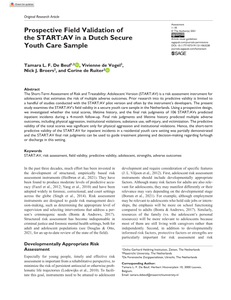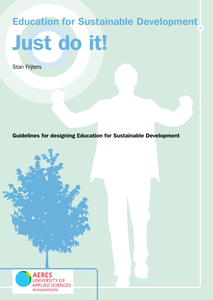Current research on data in policy has primarily focused on street-level bureaucrats, neglecting the changes in the work of policy advisors. This research fills this gap by presenting an explorative theoretical understanding of the integration of data, local knowledge and professional expertise in the work of policy advisors. The theoretical perspective we develop builds upon Vickers’s (1995, The Art of Judgment: A Study of Policy Making, Centenary Edition, SAGE) judgments in policymaking. Empirically, we present a case study of a Dutch law enforcement network for preventing and reducing organized crime. Based on interviews, observations, and documents collected in a 13-month ethnographic fieldwork period, we study how policy advisors within this network make their judgments. In contrast with the idea of data as a rationalizing force, our study reveals that how data sources are selected and analyzed for judgments is very much shaped by the existing local and expert knowledge of policy advisors. The weight given to data is highly situational: we found that policy advisors welcome data in scoping the policy issue, but for judgments more closely connected to actual policy interventions, data are given limited value.
LINK
The Short-Term Assessment of Risk and Treatability: Adolescent Version (START:AV) is a risk assessment instrument for adolescents that estimates the risk of multiple adverse outcomes. Prior research into its predictive validity is limited to a handful of studies conducted with the START:AV pilot version and often by the instrument’s developers. The present study examines the START:AV’s field validity in a secure youth care sample in the Netherlands. Using a prospective design, we investigated whether the total scores, lifetime history, and the final risk judgments of 106 START:AVs predicted inpatient incidents during a 4-month follow-up. Final risk judgments and lifetime history predicted multiple adverse outcomes, including physical aggression, institutional violations, substance use, self-injury, and victimization. The predictive validity of the total scores was significant only for physical aggression and institutional violations. Hence, the short-term predictive validity of the START:AV for inpatient incidents in a residential youth care setting was partially demonstrated and the START:AV final risk judgments can be used to guide treatment planning and decision-making regarding furlough or discharge in this setting.
DOCUMENT

Using path analysis, the present study focuses on the development of a model describing the impact of four judgments of self-perceived academic competence on higher education students' achievement goals, learning approach, and academic performance. Results demonstrate that academic self-efficacy, self-efficacy for self-regulated learning, academic self-concept, and perceived level of understanding are conceptually and empirically distinct self-appraisals of academic competence which have a different impact on student motivation, learning, and academic performance. Furthermore, the current study suggests that students reflecting high scores on the four measures of self-perceived competence, are more persistent, more likely to adopt mastery and/or performance approach goals, less anxious, process the learning material at a deeper level, and achieve better study results. However, this study also warns that high self-perceived competence (e.g., perceived level of understanding), if not accompanied by a mastery goal orientation, can turn into overconfidence resulting in lower persistence levels and poorer study results.
LINK
PURPOSE: The Nasality Severity Index 2.0 (NSI 2.0) forms a new, multiparametric approach in the identification of hypernasality. The present study aimed to investigate the correlation between the NSI 2.0 scores and the perceptual assessment of hypernasality. METHOD: Speech samples of 35 patients, representing a range of nasality from normal to severely hypernasal, were rated by four expert speech-language pathologists using visual analogue scaling (VAS) judging the degree of hypernasality, audible nasal airflow (ANA) and speech intelligibility. Inter- and intra-listener reliability was verified using intraclass correlation coefficients. Correlations between NSI 2.0 scores and its parameters (i.e. nasalance score of an oral text and vowel /u/, voice low tone to high tone ratio of the vowel /i/) and the degree of hypernasality were determined using Pearson correlation coefficients. Multiple linear regression analysis was used to investigate the possible influence of ANA and speech intelligibility on the NSI 2.0 scores. RESULTS: Overall good to excellent inter- and intra-listener reliability was found for the perceptual ratings. A moderate, but significant negative correlation between NSI 2.0 scores and perceived hypernasality (r=-0.64) was found, in which a more negative NSI 2.0 score indicates the presence of more severe hypernasality. No significant influence of ANA or intelligibility on the NSI 2.0 was observed based on the regression analysis. CONCLUSION: Because the NSI 2.0 correlates significantly with perceived hypernasality, it provides an easy-to-interpret severity score of hypernasality which will facilitate the evaluation of therapy outcomes, communication to the patient and other clinicians, and decisions for treatment planning, based on a multiparametric approach. However, research is still necessary to further explore the instrumental correlates of perceived hypernasality. LEARNING OUTCOMES: The reader will be able to (1) describe and discuss current issues and influencing variables regarding perceptual ratings of hypernasality; (2) describe and discuss the relationship between the Nasality Severity Index 2.0, a new multiparametric approach to hypernasality, and perceptual judgments of hypernasality based on visual analogue scale ratings; (3) compare these results with the correlations based on a single parameter approach and (4) describe and discuss the possible influence of audible nasal airflow and speech intelligibility on the NSI 2.0 scores.
DOCUMENT
In recent years, the fight against terrorism and political violence has focused more on anticipating the threats that they pose. Therefore, early detection of ideas by local professionals has become an important part of the preventive approach in countering radicalization. Frontline workers who operate in the arteries of society are encouraged to identify processes toward violent behavior at an early stage. To date, however, little is known about how these professionals take on this screening task at their own discretion. Research from the Netherlands suggests that subjective assessment appears to exist. In this article, we argue that the absence of a clear norm for preliminary judgments affects prejudice or administrative arbitrariness, which may cause side effects due to unjustified profiling.
DOCUMENT

There is emerging evidence that the performance of risk assessment instruments is weaker when used for clinical decision‐making than for research purposes. For instance, research has found lower agreement between evaluators when the risk assessments are conducted during routine practice. We examined the field interrater reliability of the Short‐Term Assessment of Risk and Treatability: Adolescent Version (START:AV). Clinicians in a Dutch secure youth care facility completed START:AV assessments as part of the treatment routine. Consistent with previous literature, interrater reliability of the items and total scores was lower than previously reported in non‐field studies. Nevertheless, moderate to good interrater reliability was found for final risk judgments on most adverse outcomes. Field studies provide insights into the actual performance of structured risk assessment in real‐world settings, exposing factors that affect reliability. This information is relevant for those who wish to implement structured risk assessment with a level of reliability that is defensible considering the high stakes.
DOCUMENT

Sustainable development has become a crucial part of our modern society and our education. Sustainability is a complex concept. After all, what is considered sustainable to us now may not necessarily be so in the future. We need to continually review our judgments with regards to sustainability. Education for Sustainable Development is about knowledge, attitude, behaviour and values, in which the relationship between a social, an ecological and an economic perspective is always factored in. But what does this education look like? Education for Sustainable Development. Just do it! was the motto for the practice-oriented study by Aeres University of Applied Sciences Wageningen, involving four schools and two universities. This publication describes the theoretical principles of Education for Sustainable Development and the design criteria as were used in this practice-oriented study. This publication describes the theoretical principles of Education for Sustainable Development and the design criteria as were used in this practice-oriented study. These design criteria can help us develop and implement Education for Sustainable Development.
MULTIFILE

Social media firestorms pose a significant challenge for firms in the digital age. Tackling firestorms is difficult because the judgments and responses from social media users are influenced by not only the nature of the transgressions but also by the reactions and opinions of other social media users. Drawing on the heuristic-systematic information processing model, we propose a research model to explain the effects of social impact (the heuristic mode) and argument quality and moral intensity (the systematic mode) on perceptions of firm wrongness (the judgment outcome) as well as the effects of perceptions of firm wrongness on vindictive complaining and patronage reduction. We adopted a mixed methods approach in our investigation, including a survey, an experiment, and a focus group study. Our findings show that the heuristic and systematic modes of information processing exert both direct and interaction effects on individuals’ judgment. Specifically, the heuristic mode of information processing dominates overall and also biases the systematic mode. Our study advances the literature by offering an alternative explanation for the emergence of social media firestorms and identifying a novel context in which the heuristic mode dominates in dual information processing. It also sheds light on the formulation of response strategies to mitigate the adverse impacts resulting from social media firestorms. We conclude our paper with limitations and future research directions.
DOCUMENT

Following the rationale of the current EU legal framework protecting personal data, children are entitled to the same privacy and data protection rights as adults. However, the child, because of his physical and mental immaturity, needs special safeguards and care, including appropriate legal protection. In the online environment, children are less likely to make any checks or judgments before entering personal information. Therefore, this paper presents an analysis of the extent to which EU regulation can ensure children’s online privacy and data protection.
DOCUMENT

In secondary school philosophy classes students learn to reason critically about social and scientific issues. This study examined the effects of a whole-class, teacher-led philosophy classroom dialogue intervention on students’ value-loaded critical thinking. Value-loaded critical thinking is logically consistent, self-reflective reasoning focused on making moral value-judgments about what is right to believe or do. In a quasi-experimental study (N = 437 students) with a pre-test post-test design, we investigated whether engaging in classroom dialogues in which the teachers implemented five design principles for promoting value-loaded critical thinking and transfer thereof, positively affected students’ (n = 150) value-loaded critical thinking in transfer tasks. The results were compared to two comparison conditions: students (n = 149) who participated in regular teacher-led philosophy classroom dialogues and students (n = 145) who followed a regular 10th-grade curriculum without philosophy classes. Results showed that students in the intervention condition outperformed students in both comparison conditions on referring to moral values. Regarding critical reasoning, we only found significant effects compared to the students who followed the regular 10th-grade curriculum. Findings indicate that a specifically designed dialogic intervention can enhance students’ capacities in value-loaded critical thinking.
DOCUMENT
